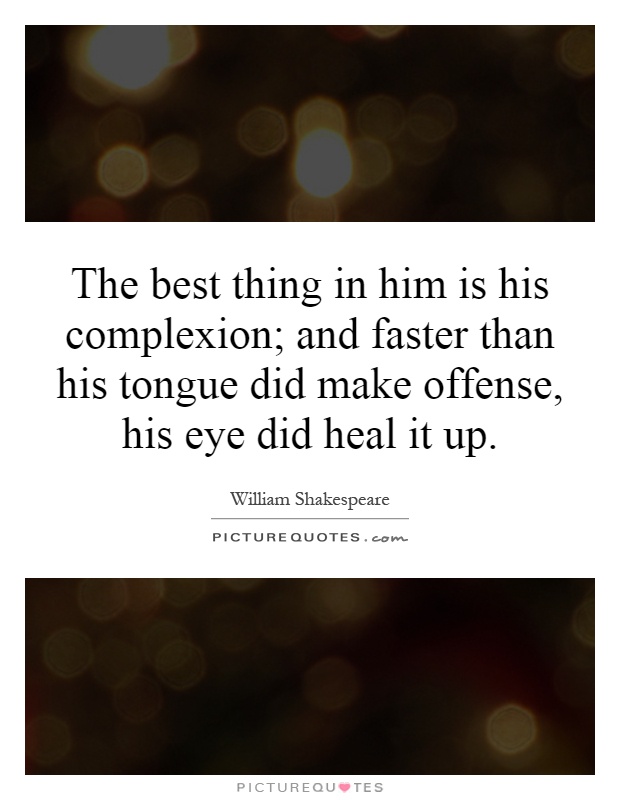The best thing in him is his complexion; and faster than his tongue did make offense, his eye did heal it up

The best thing in him is his complexion; and faster than his tongue did make offense, his eye did heal it up
In the world of William Shakespeare's plays, the power of language is often emphasized as a tool for both good and evil. Characters use their words to manipulate, deceive, and wound others, but they also use them to express love, loyalty, and forgiveness. However, in the quote "The best thing in him is his complexion; and faster than his tongue did make offense, his eye did heal it up," we see a different kind of power at play - the power of appearance and perception.The quote comes from Shakespeare's play "Much Ado About Nothing," and it refers to the character Claudio. Claudio is a young nobleman who falls in love with Hero, the daughter of Leonato. However, he is easily deceived by the villainous Don John into believing that Hero has been unfaithful to him. In a fit of rage, Claudio publicly shames Hero at their wedding, accusing her of infidelity and rejecting her in front of their families and friends.












 Friendship Quotes
Friendship Quotes Love Quotes
Love Quotes Life Quotes
Life Quotes Funny Quotes
Funny Quotes Motivational Quotes
Motivational Quotes Inspirational Quotes
Inspirational Quotes